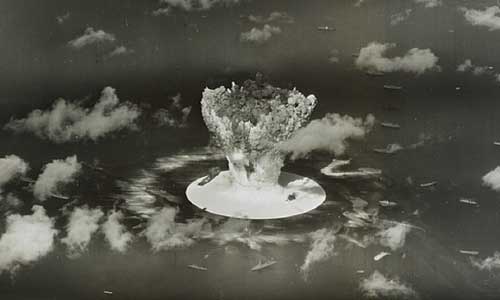UNITED NATION - The director of the UN disarmament think tank has said that the risks of a nuclear strike are now higher than ever since the World War II ended, partially due to the erosion of old arms control mechanisms.
Renata Dwan, director of the UN Institute for Disarmament Research (UNIDIR), an autonomous institution set up by the UN General Assembly in 1980 to assess risks to international security arising from militarization, told Reuters in an interview that the world has never been closer to crossing the nuclear threshold since the end of the WWII.
“I think that it’s genuinely a call to recognize – and this has been somewhat missing in the media coverage of the issues – that the risks of nuclear war are particularly high now, and the risks of the use of nuclear weapons are higher now than at any time since World War II,” Dwan said.
The growing likelihood of a nuclear attack brought about the Treaty for the Prohibition of Nuclear Weapons, the first legally binding agreement prohibiting all types of nuclear weapons as well as their transfer, stationing and threat of use. The treaty passed by the UN General Assembly by a majority of votes in July 2017, with all nuclear weapons states abstaining from the vote and only one NATO member, the Netherlands, taking part in the procedure but voting against.
The treaty needs to be ratified by at least 50 member states to come into effect. So far, it has only been ratified by 23 out of the 70 signatories.
Dawn mentioned the strategic arms race between the US and China, modernization programs run by nuclear-armed states, the emergence of new technologies that can be used for both defensive and offensive purposes as well as of new state-of-the-art weaponry as the reasons for the erosion of the decades-old mechanism that used to curb arms proliferation.
Another factor is non-state actors such as militant groups and private militias that do not abide by the law. (RT)
Home » World » UN Disarmament Chief Says Risks of Nuclear-Weapons Use Higher Than Ever Since WWII
UN Disarmament Chief Says Risks of Nuclear-Weapons Use Higher Than Ever Since WWII

